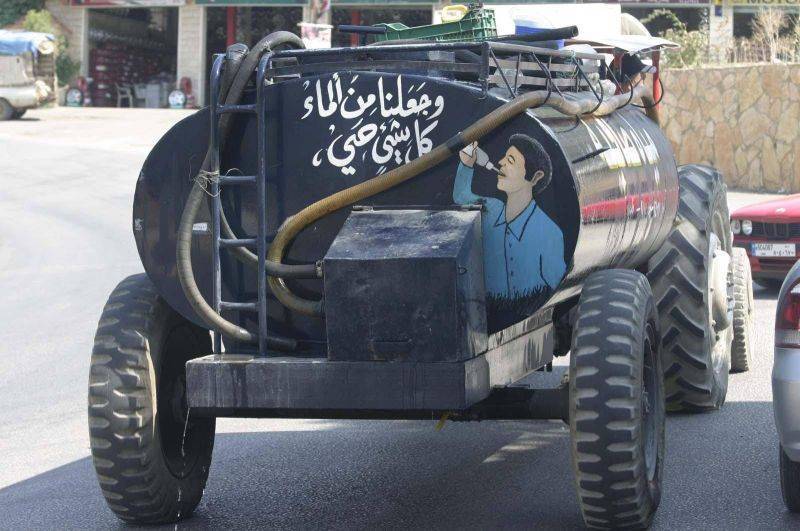
Amid electricity and fuel crises, many residents are forced to truck in water to fill their tanks. (Credit: Saïd Meallaoui)
BEIRUT — The average cost of 1,000 liters of trucked water increased sixfold between 2019 and 2022, the UN’s Children’s Fund (UNICEF) said in a new report on Lebanon’s water crisis released Thursday.
The average cost for 1,000 liters of trucked water was LL145,000 in April 2022, a 50 percent increase compared to a year prior.
The electricity and fuel crises have sharply dug into the public water establishments’ ability to pump water throughout the network to customers, leaving many people with dry taps and increasing the demand for trucked water, even among people nominally connected to the public water network. UNICEF says roughly half the population is not connected to these networks and, even under normal circumstances, relies on trucking or private wells, many of which are illegal and offer poor quality water.
Families who relied on bottled water for their drinking water needs also experienced a dramatic increase in prices in the past year—paying three to five times more than they did just one year ago, according to UNICEF. A family of five using two liters of bottled water per person per day would spend LL6.5 million a year, according to UNICEF, a figure that doesn’t include expenses for non-drinking water.
UNICEF also noted that this year’s new tariff rates in the public water system have reached LL800,000 to LL1 million per year per household. This amount is a burden for the “most vulnerable,” the report says.
New tariffs are part of a strategy to reduce the financial losses of the water establishments, whose costs are largely dollarized. The National Water Sector Strategy’s 2020 update, however, advises that “the top priority is not to change the tariff level” but to increase the rate of bill collection from users. The Bekaa Water Establishment collects bills for just 32 percent of customers, the government estimated in 2020. The best performing water establishment, Beirut and Mount Lebanon’s, collects payment from 79 percent of customers.
Amid the ongoing crisis, UNICEF said it will continue “covering certain critical day to day operational needs” of the water establishments. This aid does not include diesel for generators to operate pumping stations, which UNICEF provided between Sept 2021 and March 2022.